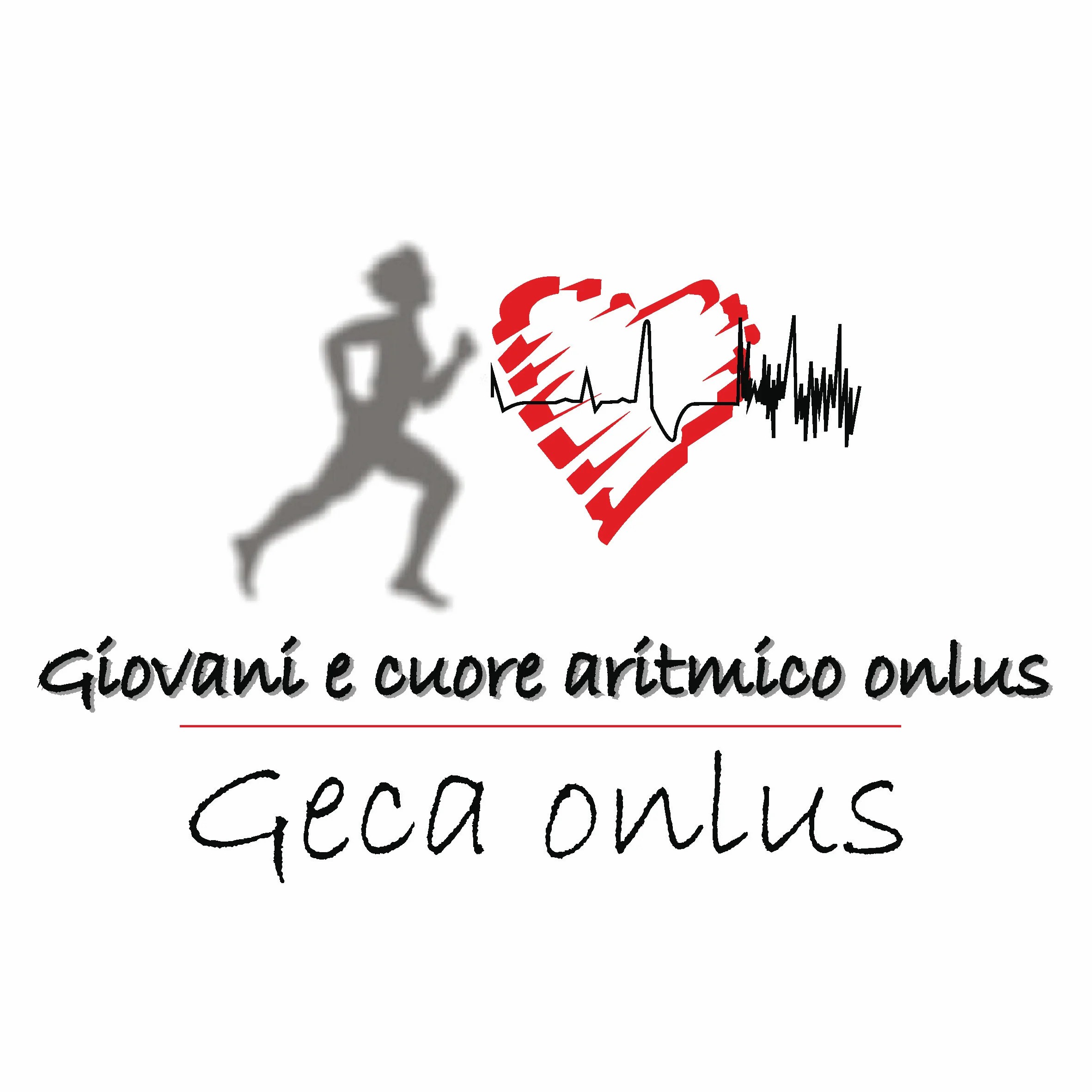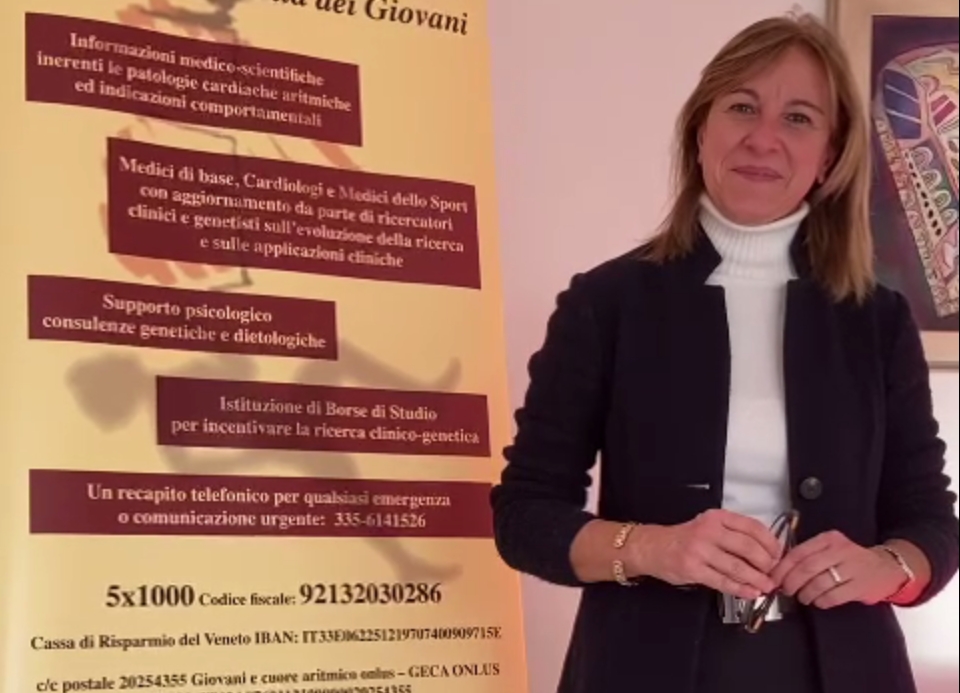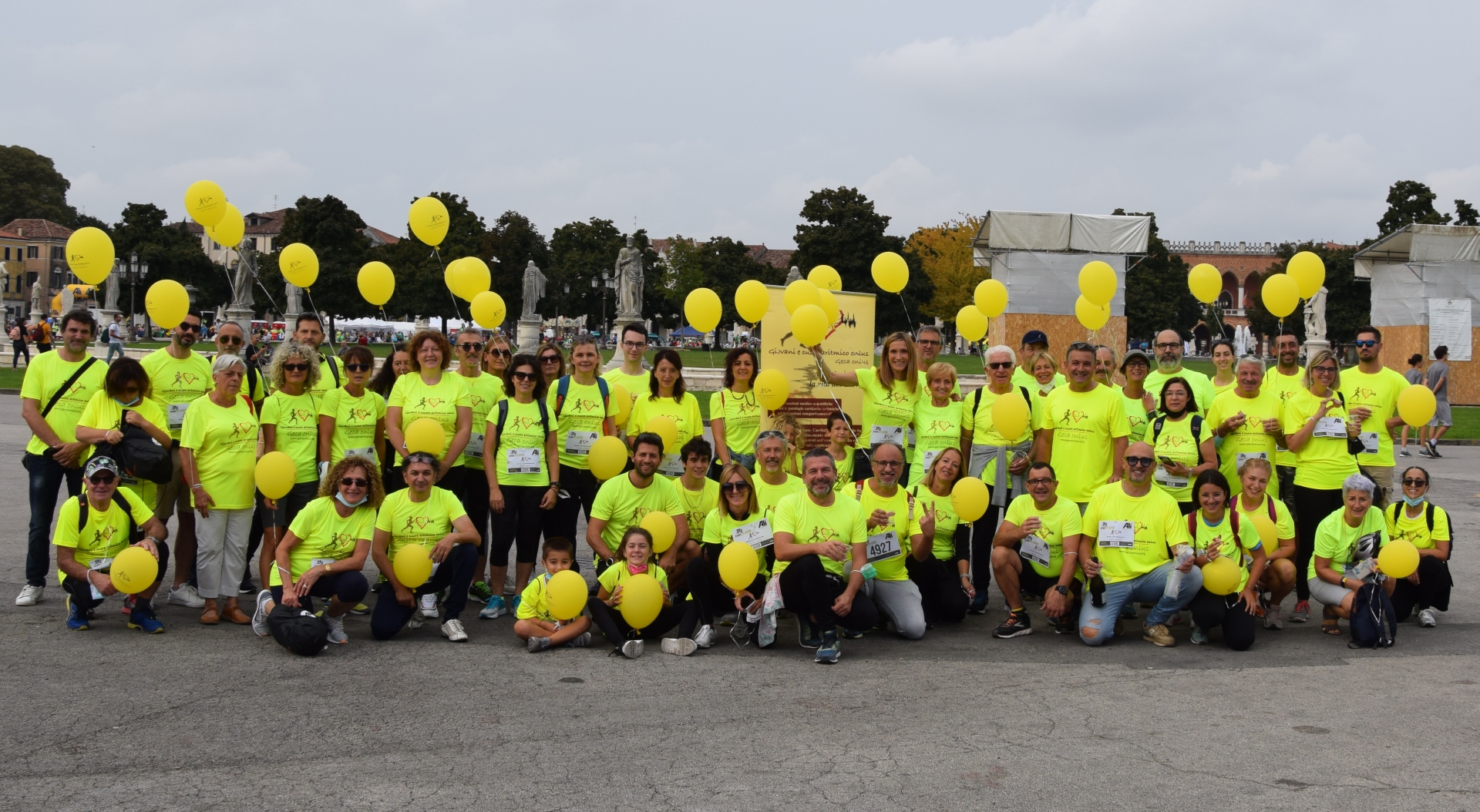
Un progetto di
#CuoreMatto
Amici vi vogliamo parlare di un cuore “matto”, un cuore aritmico, un cuore che “perde il ritmo”, che però potrebbe presto essere domato, ma per raggiungere questo ambizioso traguardo è necessario il vostro aiuto
L'obiettivo di questa raccolta fondi è finanziare una borsa di studio, di durata annuale, da attribuire ad un laureato in Biologia Molecolare dell’Università di Padova, dedicata a tempo pieno alla ricerca della Prof.ssa Alessandra Rampazzo riducendo notevolmente i tempi del progetto.
La ricerca mira a fermare una malattia congenita e ereditaria che si chiama “displasia/cardiomiopatia aritmogena del ventricolo destro” lo sappiamo, è una definizione lunga da registrare infatti la si riassume più semplicemente in “ARVD/C”. E’ la principale causa di morte cardiaca improvvisa in ambito sportivo e colpisce una persona ogni 5000 e provoca due morti all’anno ogni 100 mila persone sotto i 35 anni di età, Nell’ 80% dei casi si tratta di giovani dilettanti. Una malattia che ad oggi non ha cure, la si “tampona” con farmaci beta bloccanti che tengono sotto controllo il ritmo del cuore e appunto non vada “fuori ritmo” e in alcuni casi inserendo un defibrillatore ICD.
La chiamano “la malattia degli sportivi” perché spesso quando leggiamo sui giornali di un atleta o di un calciatore che muore sul campo di “morte improvvisa” dopo si scopre che era affetto da ARVD/C. Questa malattia si sviluppa durante l’adolescenza quando appunto i ragazzi si dedicano più intensamente allo sport, ignari di essere portatori del gene di questa malattia. Sono vite non facili sia per loro che per le persone che gli stanno accanto. Questa patologia genetica impone la sospensione dell’attività atletica agonistica proprio in un’età nella quale la pratica dello sport svolge un ruolo importantissimo nella formazione, nello sviluppo e nell'educazione di un ragazzo.
Ma ci sono meravigliosi ricercatori in Italia e nel mondo che con passione si dedicano da anni a cercare una cura. Ma la bella notizia che vogliamo darvi è che la cura sembra molto vicina. Una meta decisiva: un farmaco. Un farmaco che nei test preliminari su cellule in vitro condotti da una ricercatrice, la Prof.ssa Alessandra Rampazzo e il suo team dell’Università di Padova (gruppo di riferimento tra i più importanti in Europa) ha dato risultati molto incoraggianti. Se confermati nella seconda fase della ricerca, questi test preliminari potrebbero portare entro 2 o 3 anni alla sperimentazione di un farmaco in grado di bloccare il processo di infiltrazione da parte di tessuto fibroso e adiposo nel cuore.
Dopo molti anni di ricerca potremmo essere vicini a una svolta! Aiutiamo la Prof.ssa Rampazzo e il suo team a raggiungere il traguardo.
--------------------------------------------------------------------------------------------------------------------------------------------------
Crazy Heart
OUR STORY
#CrazyHeart
Friends we want to tell you about a "crazy" heart, an arrhythmic heart, a heart that "loses its rhythm", which however could soon be tamed, but to reach this ambitious goal, your help is needed.
The objective of this fund raising campaign is to finance a scholarship, lasting one year, to be awarded to a graduate in Molecular Biology of the University of Padua, dedicated full-time to the research of Prof. Alessandra Rampazzo, significantly reducing the time of the project. .
The research aims to stop a congenital and hereditary disease which is called "dysplasia / arrhythmogenic cardiomyopathy of the right ventricle" we know, it is a long definition to be recorded in fact it can be summarized more simply in "ARVD / C". It is the leading cause of sudden cardiac death in sports and affects one person in 5000 and causes two deaths a year for every 100,000 people under 35 years of age. 80% of cases are young amateurs. A disease that today has no cure, it is "buffered" with beta blocking drugs that keep the heart rhythm under control and precisely does not go "out of rhythm" and in some cases by inserting an ICD defibrillator.
They call it "the sports disease" because often when we read in the newspapers about an athlete or a football player who dies on the pitch of "sudden death" after it turns out that he was suffering from ARVD / C. This disease develops during adolescence when boys devote themselves more intensely to sports, unaware that they carry the gene for this disease. These are not easy lives both for them and for the people around them. This genetic pathology requires the suspension of competitive athletic activity precisely at an age in which the practice of sport plays a very important role in the training, development and education of a child.
But there are wonderful researchers in Italy and around the world who have been passionately dedicating themselves for years to seeking a cure. But the good news we want to give you is that the cure seems very close. A decisive goal: a drug. A drug that in preliminary tests on in vitro cells conducted by a researcher, Prof. Alessandra Rampazzo and her team from the University of Padua (one of the most important reference groups in Europe) gave very encouraging results. If confirmed in the second phase of the research, these preliminary tests could lead within 2 or 3 years to the experimentation of a drug capable of blocking the infiltration process by fibrous and adipose tissue in the heart.
After many years of research we could be close to a turning point! Let’s help Prof. Rampazzo and her team to reach the finishing line.

